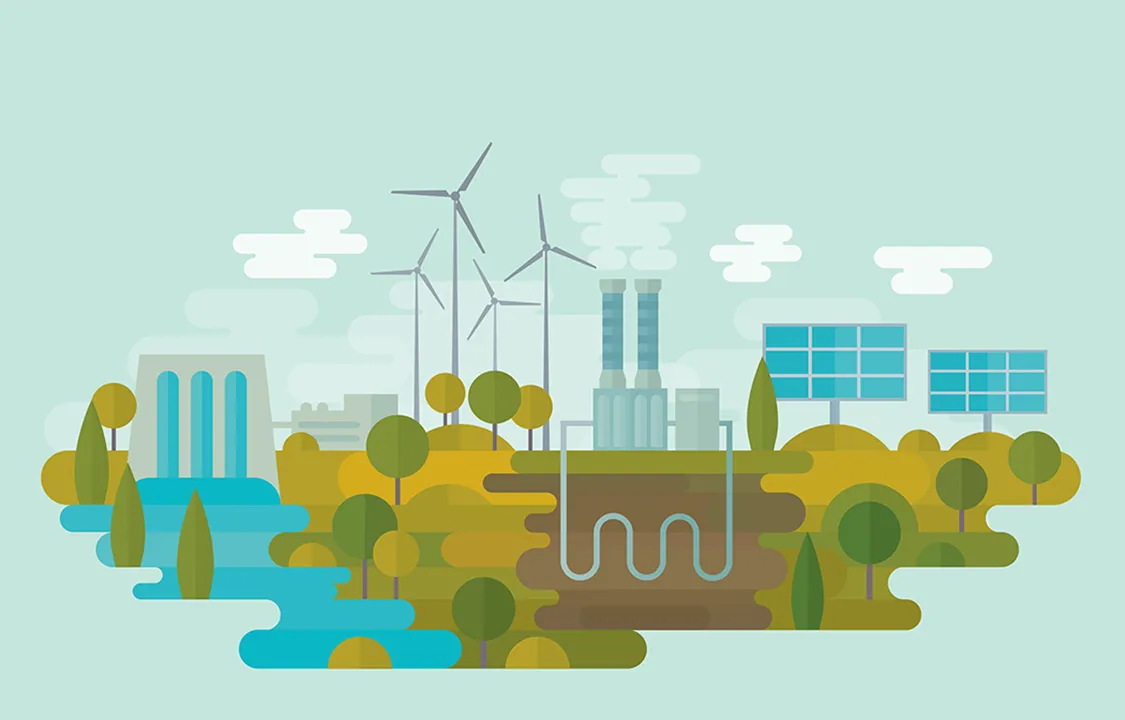
Ocean Energy: Harnessing the Power of the Seas for a Sustainable Future
Introduction
Ocean energy plays a crucial role in the sustainable energy revolution. As the world shifts towards renewable energy sources to combat climate change, the vast potential of the oceans cannot be overlooked. In this article, we will explore why ocean energy is important and how it contributes to transitioning to a sustainable future.
Historical Background
The development of ocean energy technologies has a rich historical background. Early attempts to harness the power of the ocean can be traced back to the 18th century. However, significant milestones were achieved in this field in the 20th century. From the first wave energy device to the exploration of tidal energy, the history of ocean energy is filled with groundbreaking projects and initiatives.
Key Concepts and Definitions
To understand ocean energy, it is important to define key terms and concepts. Wave energy involves the conversion of ocean waves into electricity, while tidal energy harnesses the power of tides. Ocean thermal energy conversion (OTEC) utilizes temperature differences in the ocean to generate renewable energy. This section will explore the different types of ocean energy technologies, their working principles, and the potential environmental impacts associated with their production.
Main Discussion Points
Wave Energy
Wave energy conversion devices work by capturing the kinetic energy of ocean waves. They consist of buoys or other devices that move with the waves, ultimately converting the energy into electricity. Wave energy has immense potential as a reliable and sustainable energy source, as it is abundant and consistent. This section will present successful wave energy projects and technologies, showcasing their viability and benefits.
Tidal Energy
Tidal energy harnesses the power of the tides to generate electricity. Various technologies, such as tidal barrages and tidal turbines, capture the energy created by the rise and fall of tides. While tidal energy presents challenges such as high capital costs and environmental impacts, it offers several advantages, such as predictability and consistency. Case studies of successful tidal energy projects will be discussed to highlight their potential.
Ocean Thermal Energy Conversion (OTEC)
OTEC utilizes the temperature differences in the ocean to produce electricity. By using the temperature gradient between warm surface water and cold deep water, OTEC systems can generate continuous renewable energy. This section will explain the concept of OTEC and explore its potential as a sustainable energy solution. Examples of OTEC projects or prototypes will be presented to demonstrate its feasibility.
Case Studies or Examples
Real-world examples and case studies of successful ocean energy projects provide valuable insights into their benefits and challenges. This section will discuss these projects, highlighting their contribution towards sustainable energy generation. By examining the experiences and lessons learned from these projects, we can better understand the potential for wider adoption of ocean energy technologies.
Current Trends or Developments
Advancements and breakthroughs in ocean energy technologies are constantly being made. This section will delve into recent research findings and developments that have the potential to accelerate the adoption of ocean energy. Additionally, current trends in policy and regulation that either support or hinder the growth of ocean energy will be discussed.
Challenges or Controversies
While ocean energy shows promise, it also faces challenges and controversies. High costs, technological barriers, and potential environmental impacts are among the challenges that need to be addressed. Moreover, differing viewpoints and concerns from local communities and environmental groups can impact the implementation of ocean energy projects. This section will address these challenges and controversies.
Future Outlook
The future prospects of ocean energy in the global energy mix are bright. This section will speculate on the potential of ocean energy to revolutionize the way we generate electricity. Emerging technologies and innovations that could further enhance ocean energy will be discussed. Additionally, the role of ocean energy in achieving sustainable development goals and mitigating climate change will be highlighted.
Conclusion
In conclusion, ocean energy is a vital component of the sustainable energy revolution. Its historical background, key concepts, and discussion points demonstrate the immense potential it holds. By addressing challenges, embracing technological advancements, and navigating controversies, ocean energy can play a significant role in securing a sustainable future.
References
For further reading and research on ocean energy, the following sources are recommended: [List of suggested areas or sources for further reading or research on ocean energy, including academic papers, reports, and reputable websites.]